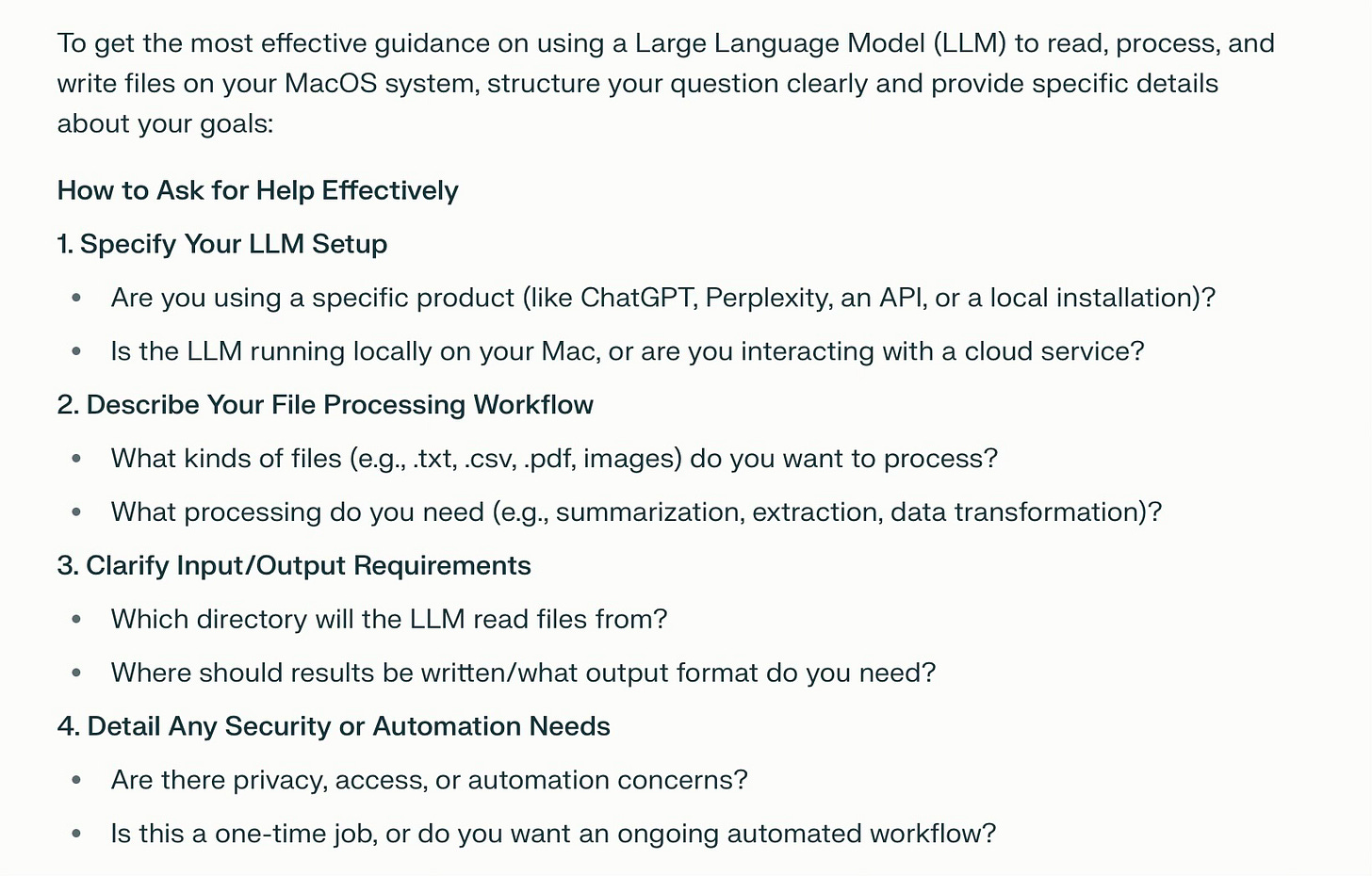Learn AI With Me: Mindset Shift
Day 3, in which we consider how we thing about interacting with AI
I’ve been listening to a lot of podcasts, interviews, and presentations on AI recently. One take away has been that people who have adopted AI successfully are thinking about what’s possible in a new way. I wanted to gather some of those ideas here for you.
Automate the work you dread
One mind-set shift that I value actually comes from multiple sources: automate the things that you hate—the tasks that you dread.
For me, one of the things that I hate doing is the social-media drudge work to promote my writing.
I love writing. I get a lot of pleasure from sitting down, finding my flow, expressing ideas, making them concrete, sharing them. This is why I have this Substack. The part that I don’t like is reposting excerpts to promote my posts. I know that it’s a good idea—it helps more people find my writing—but I just don’t enjoy it.
So for my first AI project, I’m going to try to automate this process. Ideally, I can find a way to read in a substack post, let AI create a few high-quality Substack Notes, then repost those notes on a schedule. Sounds simple, right?
Turns out not so much. (I’ll keep coming back to this story over the next few weeks.)
From Tool to Team Mate
Jeremy Utley suggests that one key to AI success is to stop thinking about AI as a tool. Instead, think of it as a team mate.
This is both disturbing and useful. There’ve already been a number of times in this project where I’ve been stuck, been tempted to phone-a-friend. Instead, remembering this advice, I decided to ask Perplexity or Claude how to proceed. In some of those situations, I’ve gotten plausible help.
AI as Tool
If you think about AI as a tool, you might ask questions similar to way that you ask Google. For example, I want to find a way to process local files with an AI engine. A Google search string: “ai tools to read and write from MacOS file system”
I get a bunch of ads, then I get Google’s AI overview, which is helpful, then I get some search results.
I past the same search string into Perplexity.ai, and it returns an undifferentiated but more complete listing of tools.
AI as Team Mate
Now, thinking about AI as a team mate, I can have a conversation. I ask, “Which tool to you recommend? I don't want to have to do any work inside the terminal.”
I get a much narrower result set. Still, the answers are unclear. So I ask a clarifying question. ““Will either of these tools allow AI to write files to my file system?
Now I get an even more specific answer, and one that’s helpful. I’m ready to try the tool that sounds best.
Have A Conversation
This approach, moving from tool to teamate is hard to keep in mind, but it’s helpful. For example Utley suggests that you can ask AI to interview you. For example, instead of just asking a question, you can prompt something like, “I’m trying to figure out which tools to use in my scenario. What’s the best way to ask you about this?”
Here’s what happened when I did that. I asked Perplexity.ai, “I'm trying to figure out how to use an LLM to read files from my MacOS file system, process those files according to a specific prompt, and then write the results back to a specific directory on my file system. What’s the best way to ask you about that?”
It came back with a detailed four-step process, and example, and an explanation of why the approach was a good one.
Now look this may be a somewhat elementary example, in that the advice doesn’t seem mind-blowing. Still, when you compare this to the process and results you’d get from a search engine, clearly we’re doing better.
This is a new paradigm, and I think it’s a step forward.
Have you seen this shift in your approach? Have you made other mindset shifts as you’ve worked with AI? Let me know in the subscriber chat.





Hey love your approach for short notes, and every post is geam. I always finish with a simple idea to think… love it